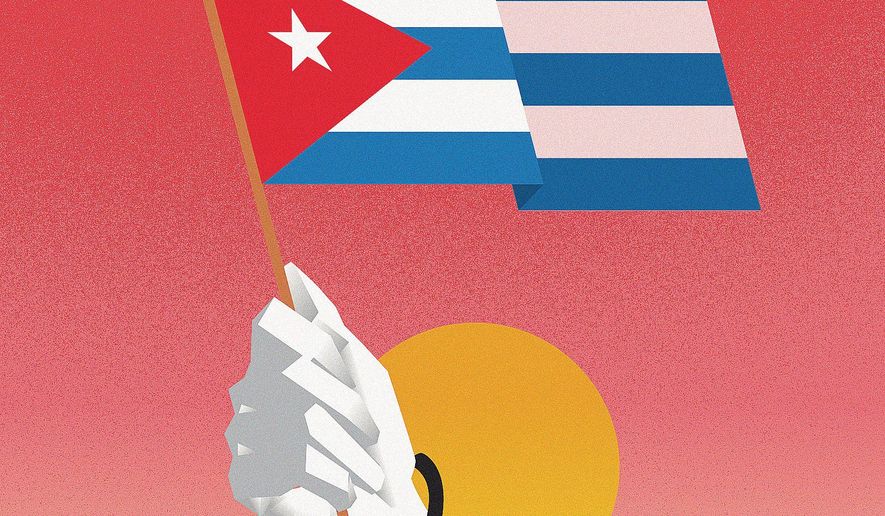OPINION:
As conditions in Cuba continue to worsen, the Communist regime is struggling to remain in control of a nation that is weary to its bones of oppression and living in squalor.
Most of Cuba’s financial benefactors have been bled dry, and very few sources of financial support remain. Human rights protests are more widespread than ever, as is the nationwide cry for change. Yet recently, the Cuban regime was given a slight reprieve, and many are voicing their disapproval.
Recently, several members of the European Parliament joined the Assembly of the Cuban Resistance, an international umbrella of anti-communist organizations, to condemn democratic governments and financial institutions for providing both direct and indirect support to the Cuban regime.
One of the key institutions providing such support is the Paris Club, which in the past 65 years has signed 433 agreements with 90 different countries to cover the public debt owed to private creditors.
Although the Paris Club has helped many impoverished countries in need in the past, it recently unconditionally forgave $8.5 billion in outstanding loans to the Cuban communist regime without demanding any reform.
This very misguided decision came at a pivotal point in which such economic relief could only help preserve the Cuban communist regime’s power structure. It is no secret that as of late, the Cuban government is facing a very precarious situation and some large-scale challenges in its effort to remain in control.
On the one hand, the July 11 human rights protests, which erupted in more than 40 cities and towns across the country, showed a population that is tired of the oppression and poverty imposed on them by living under the longest-lasting dictatorship in the Western Hemisphere.
The population has been squeezed into a state of desperation that has effectively extinguished the fear of repercussions that has kept the nation under heel for over 60 years. The scope of these most recent protests is larger and more widespread than has been witnessed in recent memory.
On the other hand, Havana is currently on the verge of economic bankruptcy due to multiple social and economic disasters. It does not appear to have the slightest chance of reversing a situation that has been already unsustainable for millions of Cubans. The imminent financial crash is being felt even by the few wealthy Cubans.
The forgiven funds were not used to improve any of the urgent conditions such as the dismal food availability, housing, infrastructure and the health care crisis that exists in Cuba today.
Instead, they equipped the regime to help repress the population with new police, military vehicles and weapons, fuel and manpower just as they did on Nov. 15, a military mobilization to preemptively crush planned peaceful protests. However, this is nothing new as the Communist Party of Cuba’s leadership has always sought to avoid any dissent, often enabling troops who enjoy guaranteed impunity for their repressive use of violence and lethal force.
While this massive investment in the tools of tyranny continues, hospitals in Cuba are under equipped, under supplied and in gross disrepair.
For the Paris Club to extend unconditional loan forgiveness to the regime is to turn a blind eye to the multitude of human rights abuses perpetrated on the Cuban people daily. Any forgiveness of Cuba’s colossal debt and any financial support must conditionally demand real changes within the country, beginning with the abolishment of the PCC.
Otherwise, governments and financial institutions will continue to finance and be complicit in the cruel repression in the country. It would serve a higher purpose to reserve any and all financial assistance and support for a time when the conditions for a democratic transition are met. That is when Cuba will truly need the goodwill. That is when the nobility of providing help to this impoverished nation will truly rebuild the jewel of the Caribbean.
The island will inevitably change. The vast majority of Cubans are demanding it. On Nov. 15, despite the gigantic police and paramilitary deployment, significant events occurred offering hope, such as priests and nuns taking to the streets and leading groups to bravely circumvent police blockades.
The unified cry for change can be seen and felt across the island like never before. Houses and balconies everywhere can be seen flying pieces of yellow or white fabric, the symbol of the new rebellion, and all of them crying out the democracy movement’s new slogan, “PATRIA Y VIDA!” – “Homeland and Life.”
• Luis Zúñiga was a former Cuban political prisoner for 19 years. He also served as a U.S. diplomat who served with the U.S. Delegation to the UN Human Rights Council.




Please read our comment policy before commenting.